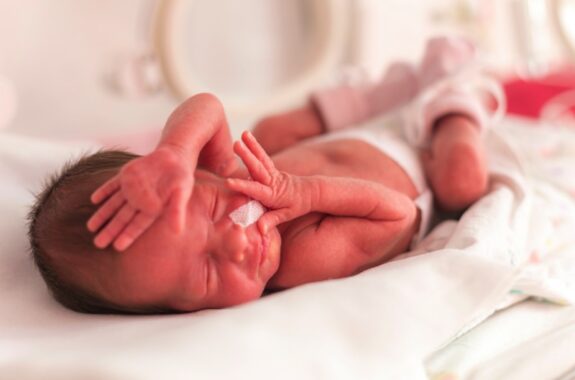Countless studies have highlighted the many benefits of music therapy. Those suffering from depression may improve their mood. An insomniac may finally start to sleep better at night. An autistic child’s meltdown may be diffused. A cerebral palsy patient may find a way to connect with the outside world. And, more recently, researchers from Beth Israel Medical Center in New York found that music therapy could help soothe preemies, improve certain health factors and even promote better bonding between parent and baby.
Premature infants born before 37 weeks gestation have a higher risk of certain complications. Sensory issues, respiratory problems, learning disabilities and cerebral palsy are just a few examples. Traditionally, these little fighters are kept within the safety of an incubator – a medical enclosure that protects them from infection and ensures they stay connected to the medical devices that are providing them with the support their tiny little bodies need. But research is finding that these tiny fighters need so much more than just the tubes and wires – they need their parents and they need physical contact whenever possible.
“We are learning from the literature and studies like this that premature infants do not necessarily grow best tucked away in an incubator,” Joanne Loewy, director of Beth Israel’s Louis Armstrong Center for Music & Medicine and researcher on the study told Medical News Today.
Published in the journal Pediatrics, Loewy and colleagues analyzed the effects of three types of music therapy on 272 premature infants in the NICU units of 11 different hospitals. All of the infants were either born close to 32 weeks gestation or they had issues with conditions like sepsis or respiratory distress.
Certified music therapists used devices known as Remo ocean discs and gato boxes. The devices make “whooshing” sounds and heartbeat womb sounds. The rhythms were matched with the heart and breath patterns of each baby. Parents and certified music therapists also sang lullabies chosen by the babies’ parents. If the parents had no preference, ‘Twinkle, Twinkle, Little Star’ was sung.
According to the researchers, the lullabies strengthened the emotional bond between parents and babies, especially when the lullabies were chosen by the family. Infants that were exposed to the ocean disc sounds showed better blood-oxygen levels and quiet-alert states. And infants showed positive health effects, like improved feeding and sleeping patterns, no matter what therapies they were exposed to. However, Loewy warns that not just any music will give these results.
“Many NICUs are noisy, or people put on random lullabies that are recorded,” Loewy said. “What were’ saying is, it’s not just any old lullaby that’s recorded, it’s the power of the parent’s voice synchronized therapeutically…and the other two sounds that can have a therapeutic benefit.”
Related Articles:
- Baby Lake Receives Doctor’s All-Clear Five Months after Life-Saving EXIT Surgery
- Study: Enzyme may Protect Babies from Effects of Stress during Pregnancy
- Over-diagnosis of GERD Leading to Overmedicated Infants







